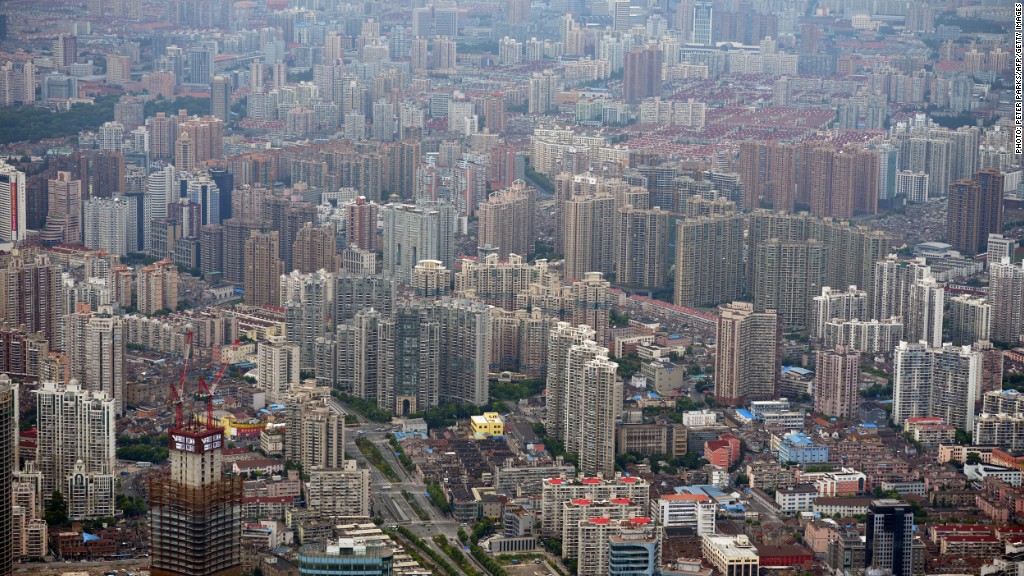
The risks of a blow up in China's property market are rising, threatening a slowdown that could hurt global growth.
The sector is second only to the related problem of credit growth on a list of threats to China's economy -- according to economists surveyed by CNNMoney.
Talk of a property bubble in China is nothing new -- economists have long fretted over the meteoric rise of home prices, and the runaway pace of new construction.
Media reports on "ghost cities" -- newly constructed Chinese municipalities that were never occupied -- led to frequent warnings of a crisis, which has not yet materialized.
The sector's continued strength results in a kind of Rorschach test, where the same image is perceived very differently: Pessimists say real estate is emblematic of problems such as rapid credit growth and backward economic incentives. Bulls counter that the boom is sustainable, especially as hundreds of millions of Chinese migrate into urban areas.
The sheer size of the real estate sector -- some 16% of GDP -- underscores the importance of the debate for a world economy that is increasingly connected to China.
The fears of a slowdown have now returned, sparked by a flurry of reports from third and fourth-tier cities that suggest ailing developers are offering big discounts to unload property quickly. Even in some major cities, sales have slowed and homeowners are fretting over lower demand.
The far flung smaller cities account for almost 70% of all home sales, according to Japanese brokerage Nomura.
"In China, the true risks of a sharp correction in the property market fall in third- and fourth-tier cities, which are not on investors' radar screens," Nomura analysts wrote recently.

Yet it is difficult to make a definitive case that trouble is ahead.
Some statistics point to resilience. One indicator tracked closely by Beijing is the labor market, and that is holding up. Developers may be under stress, but there's no sign yet of a wave of defaults or bailouts.
Official data released by the Chinese government is largely unhelpful in gauging market risk. Prices are only offered for the largest cities, and home ownership statistics are not published.
The lack of data has produced a bevy of "known unknowns" -- or potential problem areas that are known to researchers, but remain clouded in mystery.
How much excess inventory currently exists? To what extent is the banking system exposed? How might Beijing respond in a crisis? Will developers receive government bailouts?
Related story: Top 10 U.S. cities for Chinese homebuyers
Foreign investors would likely be insulated in the short term because China's equity and property markets are largely closed to outsiders.
The immediate pain would be felt much closer to home. Many Chinese view their property as investments, and huge amounts of household wealth are tied up in real estate. Down payments of 30% are common.
But a housing shock could ripple out to the broader economy, especially the banking sector -- which provides financing to many developers. In addition, real estate is closely tied to the manufacturing and services sectors.
"Property sector over investment is the top macro risk because the property sector is currently the keystone of China's economy -- if it slows, systemic risks rise," said analysts at Nomura.
Beijing would have numerous cards to play in response to a crisis. Banks and developers could be bailed out, and toxic loans corralled and sealed off from the financial system.
And there's another reason to think the fallout could be contained: Unlike in the United States prior to 2008, China has not chopped up and securitized its mortgages, lowering the risk of contagion.


